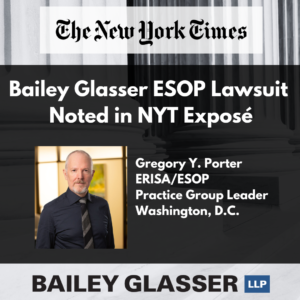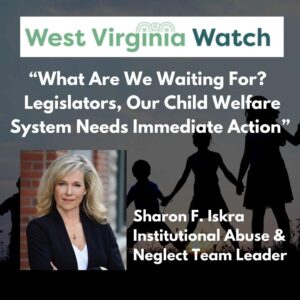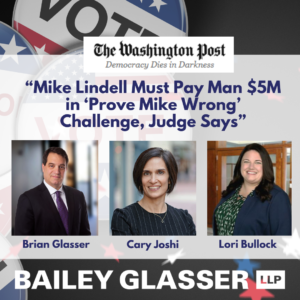 Mike Lindell, MyPillow founder and 2020 election conspiracy theorist, has lost his challenge to the multi-million-dollar arbitration award made in favor of Robert Zeidman, a respected cyber expert. BG’s Brian Glasser and Cary Joshi represent Mr. Zeidman in this matter, as well as partner Lori Bullock and paralegal Manuel Rios.
Mike Lindell, MyPillow founder and 2020 election conspiracy theorist, has lost his challenge to the multi-million-dollar arbitration award made in favor of Robert Zeidman, a respected cyber expert. BG’s Brian Glasser and Cary Joshi represent Mr. Zeidman in this matter, as well as partner Lori Bullock and paralegal Manuel Rios.
Following the 2020 election, Lindell prominently trumpeted the false theory that the 2020 presidential election involved alleged Chinese government hacking that resulted in votes cast for Donald Trump being switched to Joe Biden. In July 2021, Mike Lindell sponsored his own so-called “Cyber Symposium”, which he said would provide an opportunity for technical experts in cyber forensics to examine and evaluate the evidence presented by Lindell. Lindell was so confident in the validity of his so-called “evidence” that, as part of his Cyber Symposium, he held the “Prove Mike Wrong Challenge” and offered a $5 million prize to anyone who could prove the data was not valid.
As described in this Washington Post article, Zeidman compiled a report of his findings and sent a letter to Lindell’s firm asking for the reward, and filed for arbitration after Lindell denied his payment request. The arbitration panel required Lindell to pay Zeidman within 30 days, and when it was not paid Zeidman asked a federal court to confirm his arbitration award. On Wednesday, the federal district judge in Minnesota upheld the previous ruling from the arbitration panel and Zeidman is now owed the $5 million payout plus interest.
“The chances of a confirmation were in Zeidman’s favor,” Brian Glasser said, as arbitration rulings are upheld unless they are found to be obtained by “corruption, fraud or undue means.”
Read the full Washington Post article here.
To learn more about this case please visit here.
#ProveMikeWrong #BaileyGlasser #Electionfraud #Arbitration #Litigation

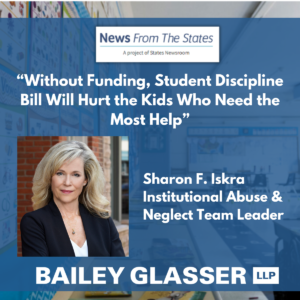 “This bill gives just half the solution: it relieves the teacher and protects the other kids, but in the majority of counties, steers the disruptive child out of the classroom and into a void where much-needed help simply does not exist.”
“This bill gives just half the solution: it relieves the teacher and protects the other kids, but in the majority of counties, steers the disruptive child out of the classroom and into a void where much-needed help simply does not exist.” 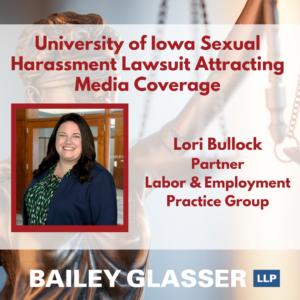 A Bailey Glasser lawsuit filed last week against the University of Iowa on behalf of a former professor for sexual harassment, gender-based discrimination, and unequal pay, is gaining local media attention – most recently by the Iowa Capital Dispatch, The People’s Network, and The Gazette.
A Bailey Glasser lawsuit filed last week against the University of Iowa on behalf of a former professor for sexual harassment, gender-based discrimination, and unequal pay, is gaining local media attention – most recently by the Iowa Capital Dispatch, The People’s Network, and The Gazette.